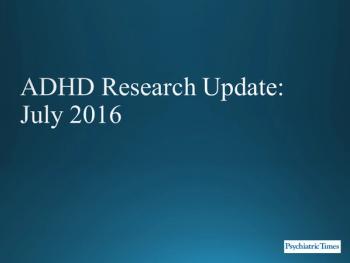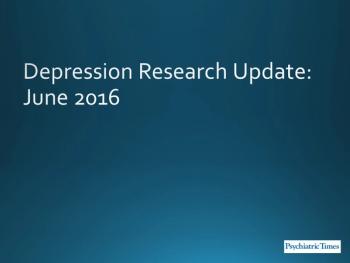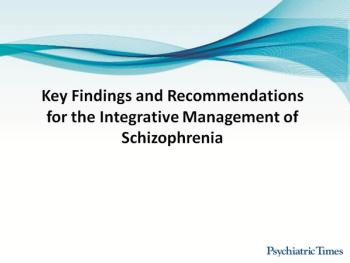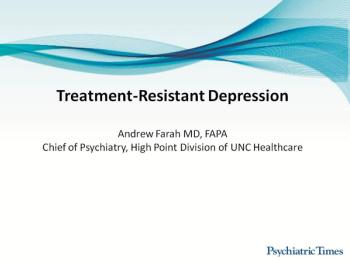
Three new studies focus on innovative therapies for ADHD.

Three new studies focus on innovative therapies for ADHD.

There is a paucity of information on complementary and integrative therapies, especially when they pertain to the topic of mental health and aging. But that's all changed.

Three new studies focus on risk factors for the development of depressive disorders.

Here: Insights regarding both the potential positive and negative effects of omega-3 fatty acids on depressive symptoms.

Therapeutic techniques can enhance psychological resilience and may help patients improve their quality of life. Here's how.

An important alternative to pharmaceutical treatments may be at hand.


A man searches for the answers to what happened to him psychologically after a childhood of high achievement. But facts intersect with fiction in this documentary.

Meditation training is a valuable, thoroughly secular tool for psychiatrists to incorporate into our patient practices-and our own personal self-care routines. Here: the basics.

What are the pros and cons of integrative psychiatry? Integrative Medicine columnist for Psychiatric Times, James Lake, MD, addresses common myths in this Q&A.

Most psychiatrists do not fit neatly into the biological or psychodynamic camps. Instead, like surgeons, they will implement tools that reduce the suffering and enhance the well-being of the patient.

Recent studies find powerful biological changes associated with mind-body interventions comparable to those associated with conventional antidepressants or psychotherapies.

The authors examine anxiety in the medically ill: its presence secondary to or as an impersonator of physical illness and its diagnostic and management challenges.

We in mental health care may be the last bastion of defense in the deterioration of the doctor-patient relationship. However, this role seems to be underplayed in the call for more integrated medicine of psychiatry with general medicine.

The limited effectiveness of current approaches provide compelling arguments for effective conventional and complementary interventions aimed at preventing PTSD and treating chronic PTSD. Specifics here.

Although there is limited evidence for mind-body treatments for schizophrenia, these approaches may improve overall quality of life without associated risks. More in this slideshow.

Select natural products have been evaluated as adjunctive agents that may be combined with conventional antipsychotics, with promising preliminary findings. Music therapy, meditation, and mindfulness training may improve quality of life for individuals with schizophrenia. Details here.

Emergency psychiatry is helping to redefine acute mental health treatment-facilitating timely access, in less restrictive, outpatient levels of care, for patients in crisis.

In this podcast, B. Andrew Farah, MD, looks at shortcomings of current therapy that make treatment-resistant depression so common, offers insights into the genetic underpinnings of TRD, and focuses on a new treatment paradigm.

Experts address specific concerns when treating the immigrant sector and describe supervised mental health services for uninsured, largely undocumented patients.

The depth and duration of medical training in psychiatric residency is yet to be determined, but given the increasing emphasis on integrated care, the role of psychiatrists is changing. More in this video.

The challenges of identifying patients at risk for alcohol withdrawal have been found to be mitigated by the development of a Risk Stratification Questionnaire, now being adopted by the VA regionally throughout New England. More in this video.

Behavioral problems “masquerade” as physical symptoms. The time has come to treat the whole patient and to make psychiatry part and parcel of primary care.

Most persons who use CAM modalities to self-treat a mental health problem take prescription antidepressants concurrently. Combined use can result in serious supplement-drug interactions.

Nonpharmacological interventions-such as mind-body interventions-can improve a partial response to antidepressants via stress reduction, improved physical functioning, increased socialization, and reduced risks of polypharmacy.